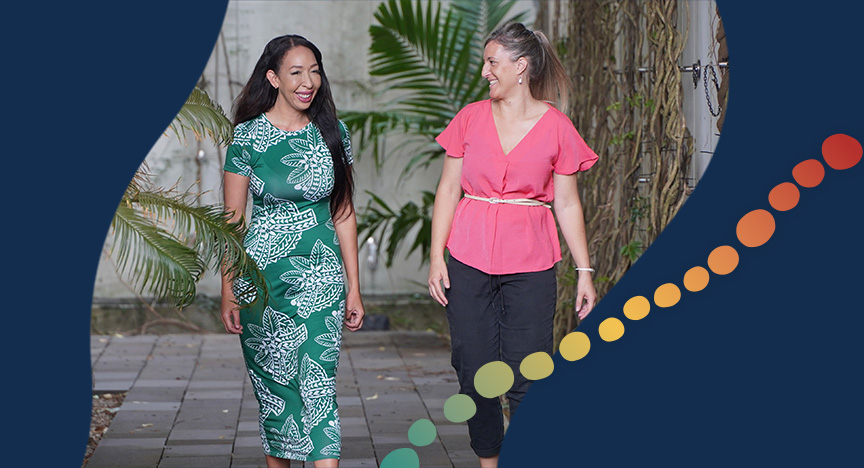
Summary
- A new study has shown that TCHHS's COVID-19 virtual care program coulld form a blueprint for health responses in rural and remote areas.
- The virtual care model was offered to local residents during the first COVID-19 Omicron wave in 2022.
- Almost 3500 people were enrolled in the program.
A virtual care program delivered to COVID-19 positive patients in the Torres Strait, Cape York and Northern Peninsula Area during the pandemic could form a blueprint for health services supporting communities during major health responses, a new study has found.
The Torres and Cape Hospital and Health Service (TCHHS) offered a COVID-19 Care in the Home (CCITH) program for residents during the first Omicron wave across the region in 2022.
The virtual model of care involved Torres and Cape HHS staff offering daily telephone calls to positive cases and their families to assist them to isolate safely at home and check their wellbeing.
The team included a significant number of Aboriginal and Torres Strait Islander staff to ensure cultural sensitivity and safety for the patients and their families.
Public Health Unit nurse Rittia Matysek, who was a lead author of the study and is a proud Torres Strait Island woman with links to Erub and Ugar Islands, said unlike other models around the state where patients just received text message updates, Torres and Cape HHS team members spoke directly to patients.
“We have an incredibly large and diverse region and the CCITH program ensured we could better address the specific needs, including cultural needs, of each person,” she said. “This may have been as simple as ensuring people had adequate medical supplies while they isolated, including regular prescriptions.
“It also ensured most people could remain in their home communities rather than needing to leave to seek medical treatment. “As part of this study we spoke to dozens of our community members who were part of the program and overwhelmingly they felt their health needs were met by TCHHS and the CCITH team.
“Most did not need to attend hospitals or primary health care centres as they were able to speak directly to someone daily and this helped ease the burden on our facilities.
“This study showed that a virtual model of care can be used in a geographically isolated area with vulnerable communities and can be well received by these communities.”
The study, which was published this month in the Australian and New Zealand Journal of Public Health this month, involved surveying 140 people who were part of the CCITH program. There were 5457 positive COVID cases recorded across the Torres Strait, Cape York, and Northern Peninsula Area during the first Omicron wave between December 2021 and April 2022. Almost 3500 enrolled in the CCITH program.
The Torres and Cape HHS had not recorded any positive cases prior to December 2021. A total of 58 people were hospitalised with, tragically, two deaths. Torres and Cape HHS Executive Director of Medical Services Marlow Coates said while the pandemic forced the delivery of many clinical services into communities to temporarily cease, the CCITH ensured healthcare was delivered directly into people’s homes.
“The pandemic was a challenging time for the entire world, but it allowed us to further expand our virtual care model which is so important in rural and remote areas,” he said. “This study shows communities were happy with the support they received, and I believe the CCITH model has many potential applications in the future for the Torres and Cape HHS and other health services.
“We will always strive to support our patients and families in the most culturally appropriate way possible and understood the importance of this additional contact and support.
“Obviously this type of model may not be appropriate in larger centres with a far higher patient volume, but for a rural and remote area it was invaluable and a credit to the staff involved in
caring for people in a very challenging environment.”